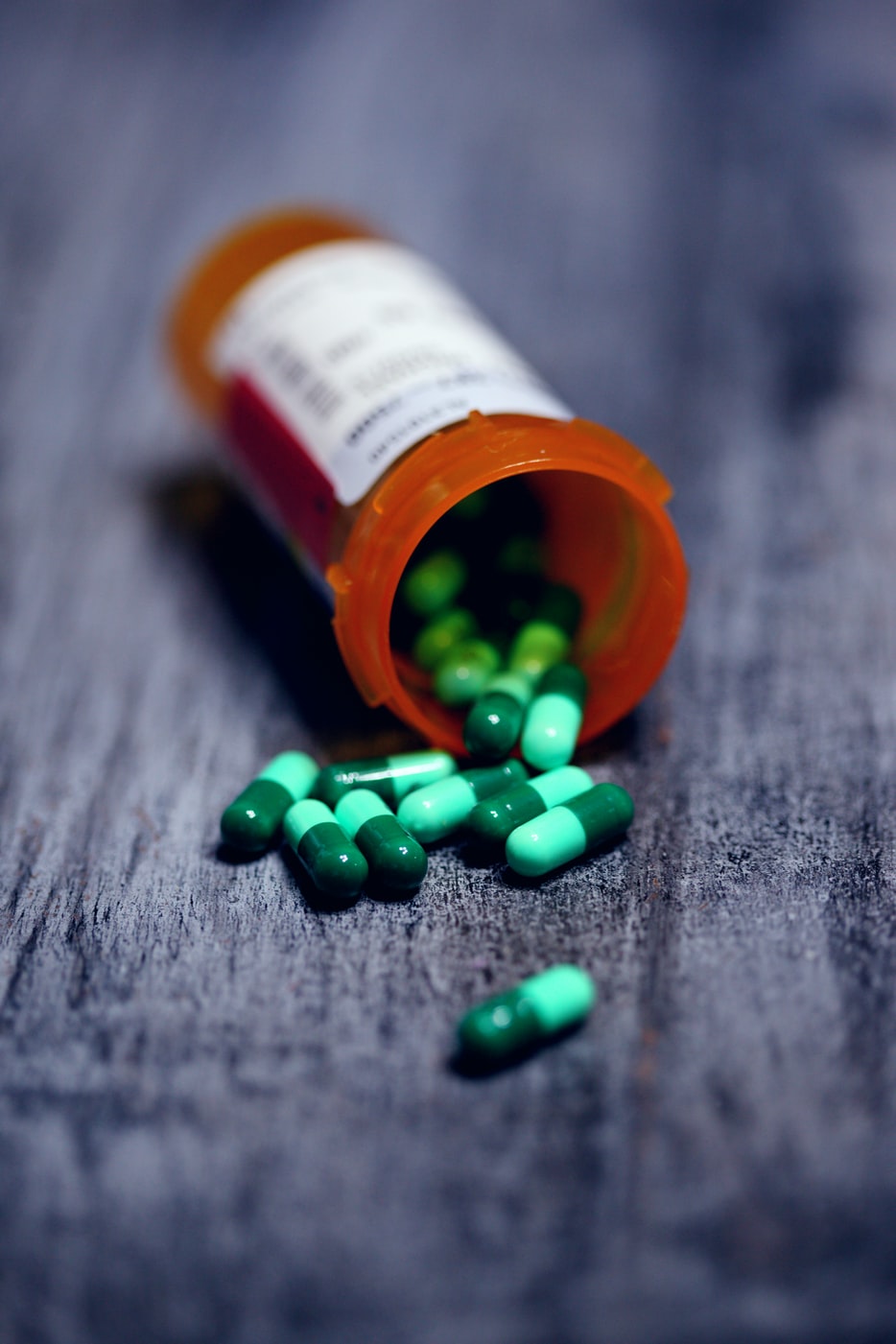Levofloxacin, a potent antibiotic essential for treating bacterial infections, can sometimes cause unintended side effects ranging from mild discomfort to severe health issues. While effective in combating bacterial infections, the majority of infections this drug is actually used for are viral or unknown etiology. The medication’s impact on various bodily systems necessitates careful management and intervention. This article explores how regenerative medicine offers innovative strategies to mitigate and reverse the side effects of Levofloxacin, promoting a comprehensive approach to recovery and well-being.
Unlocking the Impact: Understanding Levofloxacin’s Effects and Beyond
Levofloxacin, belonging to the fluoroquinolone class of antibiotics, is widely prescribed for its broad-spectrum antibacterial properties. However, its use can lead to Black Box Warning gastrointestinal disturbances, musculoskeletal pain, suicidal thoughts, anxiety and neuropathic symptoms in some individuals. Recognizing these challenges, regenerative medicine emerges as a promising adjunctive therapy to alleviate these side effects and support patient recovery.
Common Side Effects of Levofloxacin
The side effects of Levofloxacin vary but commonly include gastrointestinal issues such as nausea and diarrhea, musculoskeletal problems like tendonosis, and neurological symptoms such as headaches and dizziness. These manifestations underscore the need for personalized treatment approaches that address individual patient needs and symptoms.
Can Levofloxacin side effects be permanent?
While most side effects resolve after discontinuing the medication, some individuals may experience long-term issues. Levofloxacin, marketed under the brand name Levaquin, belongs to the fluoroquinolone class of antibiotics used for treating various bacterial infections. Common side effects of levofloxacin include nausea, headaches, and heightened sensitivity to sunlight. Diarrhea and insomnia are also potential side effects.
In addition, levofloxacin may rarely cause more severe side effects such as tendon and nerve pain, and it can also impact cardiac or hepatic functions such as palpitations or elevation of liver enzymes. It can commonly lead to brain fog and memory loss. If you have any questions or concerns regarding the side effects of levofloxacin, please consult your pharmacist or healthcare provider.

Understanding Regenerative Medicine & Strategies to Reverse Levofloxacin Side Effects
Regenerative medicine focuses on harnessing the body’s natural healing processes to repair and regenerate damaged tissues and organs. It integrates advanced technologies and therapeutic approaches, including stem cell therapy, IV nutrient administration and neuroregenerative techniques, to promote tissue repair, reduce inflammation, and restore function.
Regenerative Approaches to Mitigate Side Effects
Stem cell therapy holds promise in repairing damaged tissues affected by Levofloxacin-induced toxicity. By delivering regenerative cells to affected areas, it promotes tissue repair and regeneration, addressing musculoskeletal injuries and enhancing recovery outcomes.
Neuroregenerative techniques encompass therapies aimed at improving neurological function and mitigating symptoms such as headaches and cognitive disturbances. These approaches not only target symptom relief but also support long-term neuroprotection and cognitive health.
Holistic Strategies in Conjunction with Regenerative Medicine
In conjunction with regenerative treatments, adopting holistic strategies such as optimal nutrition, adequate hydration, and tailored supplementation enhances overall health and supports the body’s regenerative processes. Lifestyle modifications, including stress management techniques and appropriate physical activity, complement therapeutic interventions and optimize recovery outcomes.

Natural Remedies to Alleviate Gastrointestinal Issues
For individuals experiencing gastrointestinal discomfort while taking Levofloxacin, natural remedies can provide relief. Incorporating probiotics into the diet helps restore gut flora balance as levofloxacin destroys the gut microbiome.
Addressing Neurological Symptoms
Neurological symptoms such as headaches and dizziness can be challenging to manage. Lifestyle modifications such as reducing caffeine intake and practicing stress-relief techniques like meditation or deep breathing can help alleviate these symptoms. Engaging in cognitive exercises also supports mental clarity and resilience.
How to Get Help & Reverse Side Effects of Levaquin with Regenerative Medicine LA
In cases where side effects persist or worsen, prompt consultation with a healthcare provider is crucial. They can recommend alternative treatments or personalized interventions to effectively manage symptoms while continuing treatment for the underlying infection.
Dr. Mark Ghalili defines “being floxed” as experiencing mitochondrial damage and oxidative stress due to adverse reactions from fluoroquinolone antibiotics. For many, being floxed feels like a sudden onslaught of new symptoms daily within the first 90 days, potentially leading to long-term effects as highlighted in the drug’s black box warning.
Often misdiagnosed as chronic fatigue syndrome or fibromyalgia, floxing typically occurs after taking medications like Ciprofloxacin (Cipro), Levofloxacin (Levaquin), or Avelox (Moxifloxacin), sometimes in combination with steroids, NSAIDs, or other medications. Common symptoms include weakness, muscle wasting, neuropathy, anxiety, panic, tendon pain, palpitations, depression, and fatigue.
If you suspect you’ve been floxed, understanding the factors contributing to your condition is crucial. Individuals with prior exposure to fluoridated drugs such as Prozac or Diflucan are at heightened risk due to fluoride accumulation in the body. Implementing natural therapies can help mitigate the risk of permanent damage from floxing.
Seeking expertise is essential, particularly from Dr. Mark Ghalili, renowned for his extensive knowledge of fluoroquinolone toxicity. He has successfully treated over 1,000 patients and developed a comprehensive protocol involving IV therapy, Laser Therapy, health coaching, lifestyle adjustments, and personalized supplement regimens tailored to individual needs.
Treatment for fluoroquinolone toxicity begins with a thorough assessment and, if necessary, specialized testing to identify the root causes. The tailored program addresses mineral deficiencies caused by fluoroquinolones, emphasizing a gradual approach to nutritional support and lifestyle changes to prevent further harm.
Recovery typically spans about 90 days, during which patients follow a structured supplement regimen and adopt specific diet and exercise protocols designed for their condition. Dr. Ghalili emphasizes the importance of perseverance, highlighting numerous cases of patients regaining mobility and quality of life after feeling resigned to permanent disability.
For those affected by fluoroquinolone toxicity, education and support are paramount. Dr. Ghalili encourages individuals to educate themselves on the condition through resources like his lectures and testimonials, emphasizing the transformative potential of informed treatment decisions and ongoing advocacy for patient health and recovery.
What is an alternative to levofloxacin?
From a regenerative medicine perspective, alternatives to levofloxacin may include exploring integrative approaches that prioritize patient safety and minimize the risk of adverse effects associated with fluoroquinolone antibiotics. Regenerative medicine emphasizes personalized treatment plans tailored to individual health needs, which may include:
- Natural Antibiotic Alternatives: Integrating natural antimicrobial agents, such as herbal remedies or probiotics, to support the body’s immune response may combat infections. Levaquin should only be used as a last resort.
- Stem Cell Therapy: Utilizing stem cell treatments to enhance immune function and promote tissue repair, potentially reducing the need for prolonged antibiotic use.
- Nutritional and Lifestyle Modifications: Emphasizing a balanced diet rich in nutrients that support immune health, coupled with lifestyle adjustments like stress management and adequate sleep, to bolster overall well-being.
- Holistic Approaches: Incorporating complementary therapies such as acupuncture, chiropractic care, and physical therapy to optimize healing and minimize the need for systemic antibiotics.

These alternatives aim to mitigate the potential risks associated with traditional antibiotics like levofloxacin while promoting comprehensive health and wellness through integrative and regenerative strategies. It’s essential for individuals to consult with qualified healthcare providers to determine the most suitable treatment approach based on their specific health conditions and needs.
Navigating Recovery: Overcoming Levofloxacin’s Side Effects
In the quest to overcome the side effects of Levofloxacin, informed guidance and proactive strategies are paramount. While this antibiotic effectively treats infections, its potential for fluoroquinolone toxicity, or being “floxed,” requires comprehensive management and personalized treatment approaches.
Dr. Mark Ghalili’s pioneering work in regenerative medicine offers hope to those affected by fluoroquinolone toxicity. Through tailored protocols integrating IV therapy, Laser Therapy, and holistic interventions, Dr. Ghalili has guided numerous patients towards healing. His approach addresses not only the physical symptoms but also supports mental and emotional well-being, empowering individuals on their journey to recovery.
Reversing the effects of Levofloxacin involves understanding the condition’s complexities and advocating for safer antibiotic practices. By embracing natural therapies alongside medical interventions, individuals can foster cellular repair, minimize oxidative stress, and regain overall health. Patience, perseverance, and a supportive healthcare team are essential as you navigate this journey towards renewed vitality and well-being.
FAQs
How long do Levofloxacin side effects last?
Side effects may become permanent, yet typically can last months, the risk of tendon rupture increases for up to one year.
Can Levofloxacin interact with other medications?
Yes, Levofloxacin can interact with various drugs, including NSAIDs, steroids, blood thinners, and certain antidepressants. Always inform your doctor about all medications you are taking.
What percentage of people have side effects from levofloxacin?
The occurrence of side effects from levofloxacin can vary widely among individuals. Studies suggest that up to 20% of people prescribed levofloxacin may experience a noticeable side effect. Dr. Ghalili strongly believes 100% of individuals using levofloxacin suffer from side effects due to mitochondrial and gut microbiome damage. These can range from mild symptoms like nausea or headaches to more severe reactions such as tendon ruptures, anxiety, psychosis, brain fog, palpitations, weakness, fatigue or neurological issues. It’s essential for patients to discuss any concerns or symptoms with their healthcare provider promptly to ensure appropriate management and treatment adjustments if necessary.
What is the toxic effect of levofloxacin?
Levofloxacin, a potent fluoroquinolone antibiotic, can lead to a range of toxic effects, particularly in susceptible individuals. Common toxic effects include damage to mitochondria, the cell’s energy-producing organelles, and oxidative stress throughout the body. This combination can lead to a variety of symptoms known collectively as fluoroquinolone toxicity or being “floxed.”
Symptoms may include muscle weakness, neuropathy, anxiety, depression, tendon pain, and cardiovascular issues. In severe cases, levofloxacin toxicity can result in long-term disability and a significant impact on quality of life. It’s crucial for patients and healthcare providers to be aware of these potential risks and to monitor for early signs of toxicity to mitigate long-term effects.


